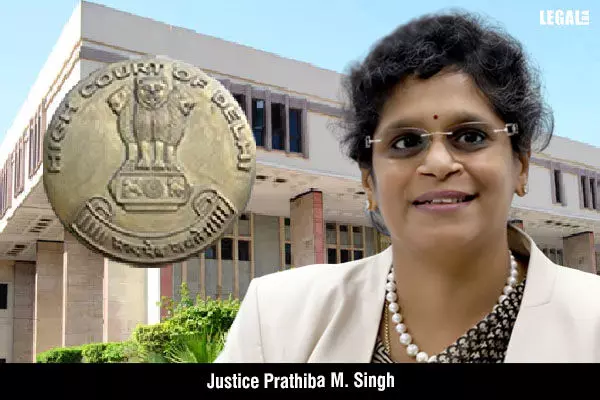- Home
- News
- Articles+
- Aerospace
- AI
- Agriculture
- Alternate Dispute Resolution
- Arbitration & Mediation
- Banking and Finance
- Bankruptcy
- Book Review
- Bribery & Corruption
- Commercial Litigation
- Competition Law
- Conference Reports
- Consumer Products
- Contract
- Corporate Governance
- Corporate Law
- Covid-19
- Cryptocurrency
- Cybersecurity
- Data Protection
- Defence
- Digital Economy
- E-commerce
- Employment Law
- Energy and Natural Resources
- Entertainment and Sports Law
- Environmental Law
- ESG
- FDI
- Food and Beverage
- Gaming
- Health Care
- IBC Diaries
- In Focus
- Inclusion & Diversity
- Insurance Law
- Intellectual Property
- International Law
- IP & Tech Era
- Know the Law
- Labour Laws
- Law & Policy and Regulation
- Litigation
- Litigation Funding
- Manufacturing
- Mergers & Acquisitions
- NFTs
- Privacy
- Private Equity
- Project Finance
- Real Estate
- Risk and Compliance
- Student Corner
- Take On Board
- Tax
- Technology Media and Telecom
- Tributes
- Viewpoint
- Zoom In
- Law Firms
- In-House
- Rankings
- E-Magazine
- Legal Era TV
- Events
- News
- Articles
- Aerospace
- AI
- Agriculture
- Alternate Dispute Resolution
- Arbitration & Mediation
- Banking and Finance
- Bankruptcy
- Book Review
- Bribery & Corruption
- Commercial Litigation
- Competition Law
- Conference Reports
- Consumer Products
- Contract
- Corporate Governance
- Corporate Law
- Covid-19
- Cryptocurrency
- Cybersecurity
- Data Protection
- Defence
- Digital Economy
- E-commerce
- Employment Law
- Energy and Natural Resources
- Entertainment and Sports Law
- Environmental Law
- ESG
- FDI
- Food and Beverage
- Gaming
- Health Care
- IBC Diaries
- In Focus
- Inclusion & Diversity
- Insurance Law
- Intellectual Property
- International Law
- IP & Tech Era
- Know the Law
- Labour Laws
- Law & Policy and Regulation
- Litigation
- Litigation Funding
- Manufacturing
- Mergers & Acquisitions
- NFTs
- Privacy
- Private Equity
- Project Finance
- Real Estate
- Risk and Compliance
- Student Corner
- Take On Board
- Tax
- Technology Media and Telecom
- Tributes
- Viewpoint
- Zoom In
- Law Firms
- In-House
- Rankings
- E-Magazine
- Legal Era TV
- Events
Delhi High Court: Insistence On Pre-Arbitral Steps Meaningless, If Respondent Fails To Respond To Petitioner’s Notices

Delhi High Court: Insistence On Pre-Arbitral Steps Meaningless, If Respondent Fails To Respond To Petitioner’s Notices
Dismisses the objection and appoints an arbitrator
The Delhi High Court has held that pre-arbitral steps providing resolution of disputes through mutual talks or through ombudsman would lose its relevance if a party failed to respond to the notices issued by the other party seeking amicable settlement.
The parties entered into a Redistribution Stockist Agreement dated 14.07.2021 wherein the petitioner was appointed as a stockist for the respondent.
Clause 21 of the agreement provided for a multi-tier dispute resolution clause. It meant that the parties should first attempt to resolve the dispute through amicable settlement and if it failed, the dispute should go to an ombudsman. Still, if it did not work, the dispute would be resolved through arbitration.
On 22.02.2022, the respondent terminated the agreement. A dispute arose between the parties on the dues payable. Accordingly, the petitioner issued the arbitration notice, but the respondent did not respond. Instead, he filed a suit before the Gurgaon District Court.
Thereafter, the petitioner filed an application under Section 11(6) of the Arbitration and Conciliation Act (A&C) Act seeking an arbitrator’s appointment.
The respondent objected to the maintainability of the petition on the grounds:
• The agreement provides for a multi-tier dispute resolution clause.
• The petition is pre-mature since the pre-arbitral steps are not fulfilled.
The bench of Justice Prathiba M. Singh observed that the respondent could not insist on fulfilment of pre-arbitral steps after not responding to the notice of dispute. It held that pre-arbitral steps providing for resolution of disputes through mutual talks or through ombudsman would lose relevance if a party failed to respond to notices issued by the other party seeking amicable settlement.
Therefore, the judge dismissed the objection and appointed an arbitrator.


